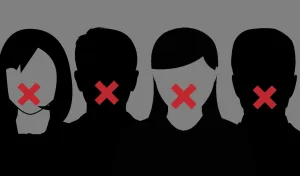What can be said about the Central Government’s recent decision to abolish the “no-detention” for students in classes 5 and 8 in schools under its jurisdiction. This policy has been removed through a gazette notification titled “Right of Children to Free and Compulsory Education (Amendment) Rules, 2024.” Interestingly, heading of this gazette notification, dated December 16, published by Ministry Education carries a strong message. It, as apparent, seeks to amend the Right of Children to Free and Compulsory Education in schools run by central government. The nature of amendment seems targeted to depriving a large section of children to free and compulsory education. There is a view that policy of “no-detention” leads to poorer standards of education in higher classes. Given that this policy was practiced only till class 8, the question of it leading to lower standards in higher classes doesn’t apply as only those able to pass class 8 examinations would be promoted. Simply speaking, students taking studies lightly may not be able to make it to senior classes so the question of “no detention” leading to poorer standards in higher classes doesn’t really seem acceptable.
The recent amendment, it is feared may deprive a considerable section from poor and rural sections of a “Right” they seemed to be making all efforts to making maximum use of. In this context, the key issue is not simply that of ensuring that children of these sections pass examinations of classes 5 and 8. This policy had apparently made them considerably aware of the significance of education in their lives. This is marked by increasing number of people sending their children to schools. The fact that their children could reach class 8 played a great part in making them feel great and proud about this achievement. These include people from slum areas in urban areas, those from deprived sections and others in rural areas. Here, it may be noted, the recent decades have been marked by a great increase in number of private schools in the country. This is another indicator of importance having begun being given to education during this phase. Now, most private schools are too expensive to be within reach of all sections of society. Schools run by government remain their sole hope of improving educational standards of their children. Sending their children to school is also a means of adding a sense of discipline to their lives. It also helps them in ensuring a meal provided by government run schools.
Given the nature of literacy rate in India and lack of employment opportunities for minimally educated, assuring basic education till class 8, may be viewed as just a small step towards making Indians more progressive as well educationally cultured in the coming decades. But depriving them of a fundamental right that each Indian is constitutionally entitled to is also equivalent to pushing them backwards. Isn’t it? The possibility of certain students not giving adequate importance to what is taught in school cannot be ignored. But children are children. Also, the reality that boys have a stronger tendency to do this cannot be ignored. Rather than blaming kids for this, wouldn’t it be more pertinent to give greater importance to nature and quality of education that they are being given, particularly in rural areas? Students need to be encouraged to develop an interest in education and not be punished for what they are not in essence responsible. More attention needs to be paid to the background from which they come. A considerable number belong to sections where their parents, particularly fathers may be totally illiterate. They belong to working classes and may be the first of their generation in the family to go to school. Certainly, a child of these sections may not succeed in becoming fully educated. But his entry to corridors of education usually acts as an encouragement for others of his family and class to follow suit. It may take a generation or even more for someone of this section to be recognized as “fully” educated. Some importance should also be given to be “pride” with which elderly in school-going children in family talk of their kids going to school. Yes, a considerable number fail to clear class 8 examination and have to drop out. But it may be noted that these “drop-outs” are viewed by their lesser educated and/or illiterate relatives as “educated.” It has been observed, the girls among these “educated” ones tend to start tuition classes for younger children of their area in rural as well as urban areas, with some taking fees also.
Clearly, importance of education among lives of particularly those socially and economically deprived cannot be side-lined or more specifically scrapped away as this is their fundamental right. It is possible, this move is expected to lessen expenses being incurred by central and state governments. The policy of “no-detention” was enacted in 2009. During the same period, it may be noted, certain measures were introduced to ensure balanced and nutritious diet for students studying in government and government-aided schools from class 1 to 8. This was then known as Midday Meal Scheme. This was renamed as PM POSHAN Scheme in 2021 and cleared for government and government-aided schools from 2021-22 to 2025-26. Indirectly, perhaps this implies that this may or may not continue a year or two later.
Withdrawal of “no-detention” policy also apparently implies lesser students in classes 6 to 8 due to their inability to clear class 5 examinations. This specifically refers to students from poorer, marginal, deprived and rural areas. This also means that lesser students will be able to benefit from PM POSHAN scheme.
Of course, it is great to hear Indian leaders talk about India heading towards progress and development. But how is the country expected to progress if more Indians are deprived of their right to education? If report cards are used to decide educational rights of Indians at preliminary levels, it is equivalent to closing their access to corridors of education. It is indeed amazing that despite scrapping of this policy spelling almost a dark phase for a large section of Indian population, hardly any voice appears to have been raised questioning the same. It is shocking that sections which are likely to be most adversely affected by stand favoring detention are the ones to whom politicians turn most for votes!
[Nilofar Suhrawardy is a senior journalist and writer with specialization in communication studies and nuclear diplomacy. She has come out with several books. These include:– Modi’s Victory, A Lesson for the Congress…? (2019); Arab Spring, Not Just a Mirage! (2019), Image and Substance, Modi’s First Year in Office (2015) and Ayodhya Without the Communal Stamp, In the Name of Indian Secularism (2006). Courtesy: Countercurrents.org, an India-based news, views and analysis website, that describes itself as non-partisan and taking “the Side of the People!” It is edited by Binu Mathew.]




